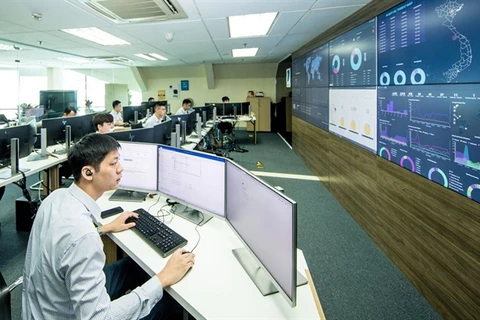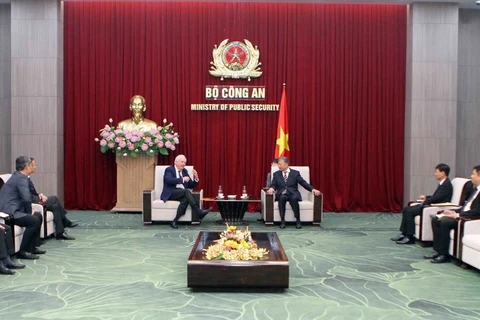
Hanoi (VNS/VNA) – Vietnam continues to be among the countries with the highest overall cybersecurity index score in the fifth Global Cybersecurity Index.
The International Telecommunication Union (ITU) has just announced the fifth Global Cybersecurity Index (GCI) 2024.
The ITU report showed that countries around the world were improving cybersecurity efforts.
However, the report also pointed out that countries needed to take stronger actions to meet evolving cyberthreats.
Participating countries are classified into five-tier groups, of which Tier 1 is the highest group with a score of 95-100, including 46 countries that play a 'model' role.
The ITU reported that Tier 1 countries have all made significant progress compared to the last index released in 2021.
Vietnam is one of 46 countries ranked in Tier 1 on the ITU Global Cybersecurity Index with a total score of 99.74.
Along with Vietnam, four other Southeast Asian countries also appeared in the group including Indonesia (100), Thailand (99.22), Malaysia (98.82) and Singapore (99.86).
Also according to the GCI 2024, 123 countries reported having trainings for cybersecurity professionals, 153 countries have integrated cybersecurity into national curricula at some level and 164 countries have legal measures in place for child online protection.
Vietnam ranked quite high in the rankings (25/182 countries) in the fourth GCI in 2020.
With the above efforts, developing a strong domestic cybersecurity industry is essential to maintain progress, maintain and improve Vietnam’s reputation in ensuring cybersecurity, as well as making an important contribution to the national digital transformation.
The GCI was first published by the ITU in 2015, to support countries in identifying areas for improvement and encourage countries to take action to develop capacity in each criterion.
The index is constantly changing to adapt to changing risks, priorities and resources and provide the most comprehensive picture of each country's cybersecurity measures.
“Building trust in the digital world is paramount," said Doreen Bogdan-Martin, ITU Secretary-General in the report.
“The progress seen in the Global Cybersecurity Index is a sign that we must continue to focus efforts to ensure that everyone, everywhere can safely and securely manage cyber threats in today's increasingly complex digital landscape."
GCI 2024 assesses national efforts across five pillars, representing country-level cybersecurity commitments: legal, technical, organisational, capacity development and cooperation.
GCI 2024 includes individual assessments and provides a clear status report and a roadmap of activities to make further progress on cybersecurity.
According to the report, legal measures are the strongest cybersecurity pillar for most countries. Nearly 180 countries have at least one regulation on either personal data protection, privacy protection or breach notification in force or in progress.
Nearly 140 countries have active computer incident response teams (CIRTs), with various levels of sophistication.
More than 130 countries have a National Cybersecurity Strategies (NCS) as of this year, up from 107 in the 2021 index.
Cyber awareness campaigns are widespread.
Up to 152 countries have conducted cyber awareness initiatives targeting the general population, with some also targeting specific demographics such as vulnerable and underrepresented populations, to create a culture of cybersecurity and address potential risks.
Many countries cooperate on cybersecurity through existing treaties. Up to 92% of countries (166) reported being part of an international treaty or comparable cooperation mechanism for cybersecurity capacity development, or information sharing, or both.
Putting cybersecurity agreements and frameworks into practical operation remains challenging./.






















